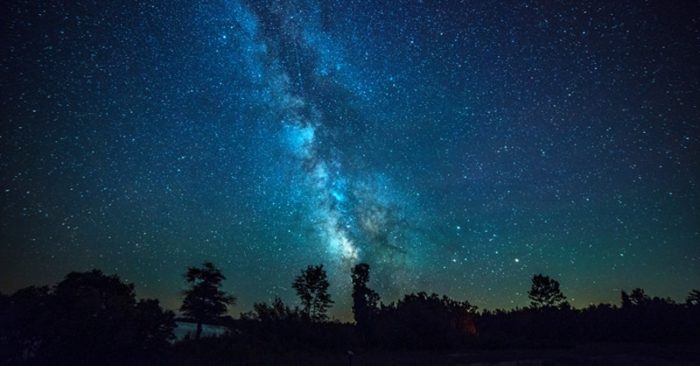Jan 13 2020
Light and Satellite Pollution
(Side note: I had a small injury to my dominant index finger which is slowing down my typing considerably. My blog posts may be shorter than usual this week.)
 When I was recently in New Zealand and Australia, I tried very hard to get a good look at the Southern sky. It was a lot harder than I thought it would be. Over a period of two weeks I had really one opportunity, and I had to drive 40 minutes out of town to do it. It really drove home for me how bad light pollution has become. Depending on where you live you may spend most of your life unable to see the night sky. A true dark sky experience is also amazing – only then do most people realize what they are missing.
When I was recently in New Zealand and Australia, I tried very hard to get a good look at the Southern sky. It was a lot harder than I thought it would be. Over a period of two weeks I had really one opportunity, and I had to drive 40 minutes out of town to do it. It really drove home for me how bad light pollution has become. Depending on where you live you may spend most of your life unable to see the night sky. A true dark sky experience is also amazing – only then do most people realize what they are missing.
We are now realizing that the ability to see the night sky is a resource, one we did not collectively realize we were sacrificing for the convenience (and even safety) of lighting. No one made this decision, it evolved organically. But now we have to make a risk-reward calculation and decide how best to balance our lighting needs with preserving the dark sky as a natural resource.
BTW – the Bortle scale rates how dark a sky is with descriptions of each level.
With the advent of LED lighting the problem is getting much worse. But there are steps that can be taken, public regulations, that help preserve the night sky without much sacrifice. Facing lights down, for example, and limiting their brightness and color can significantly help. There are now dark-sky friendly lighting products. But really this needs to be done on a city-wide level.
Now there is a new threat to sky viewing – satellites. This is not a problem for the casual viewer, but it is for astronomers who rely of photographic imaging of the sky. Every time a satellite crosses in front of the field of view it leaves a streak of light. Right now this is an annoyance, as it means a certain percentage of images are not usable. However, it is about to become a huge problem. Space X has already launched hundreds of satellites, but plans to launch thousands as part of their Starlink project, to create world-side WiFi. Other companies/countries may follow suit. This will increasingly become a menace to astronomy.
Musk is now apparently working with astronomers to make the satellites less reflective, to minimize their impact on viewing. We will see how this goes, but at least he recognizes the issue and is addressing it. China, however, may not care when they launch their own initiative.
This seems like an area where international agreements are necessary. When you put a satellite into orbit you are using a limited public resource. Who owns the sky? There is also the issue of space junk menacing low-Earth orbit. Everyone should be responsible for cleaning up their own mess.
These are all issues to follow. There needs to be political will to at least reasonably address the concerns over preserving the sky as a public resource.






